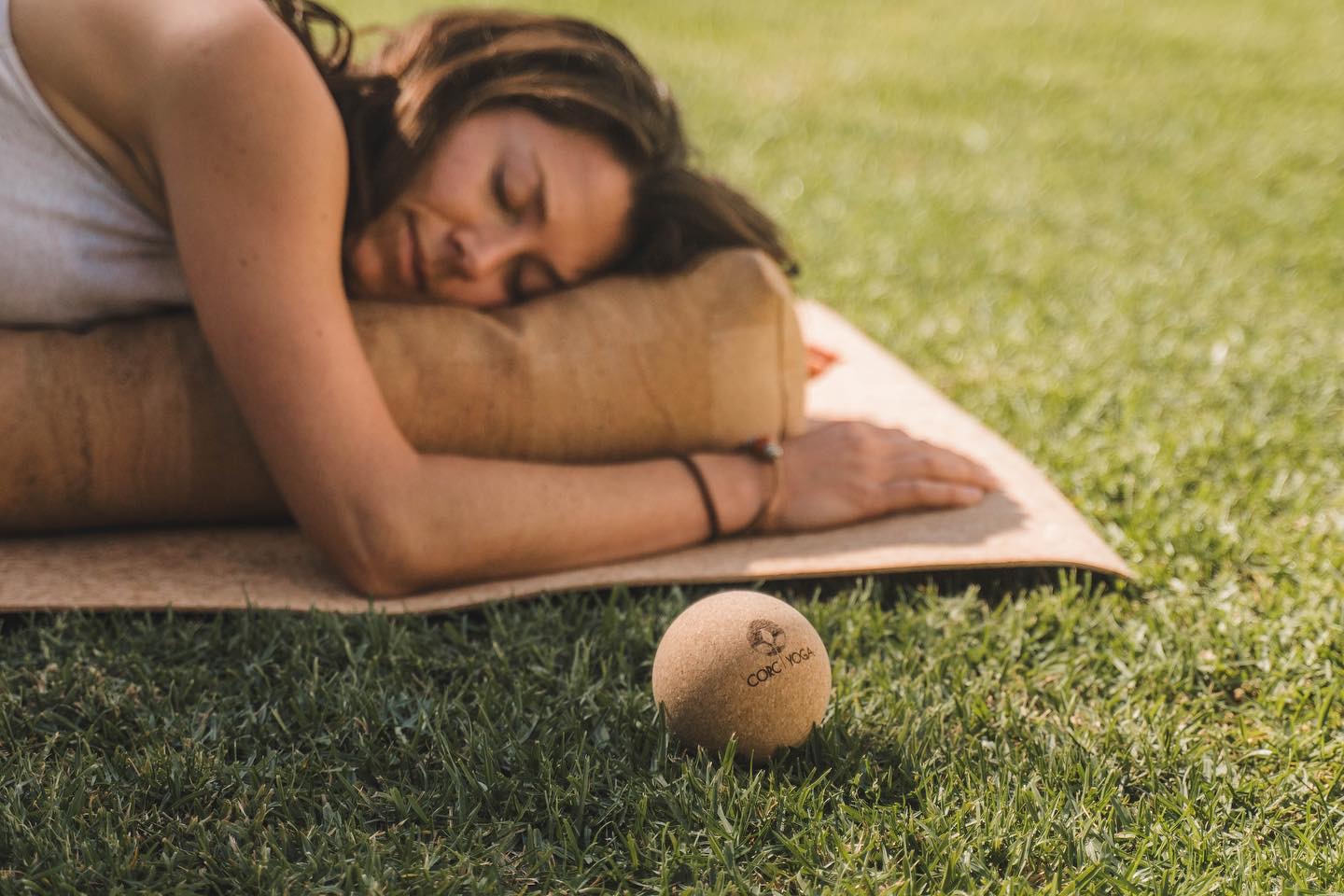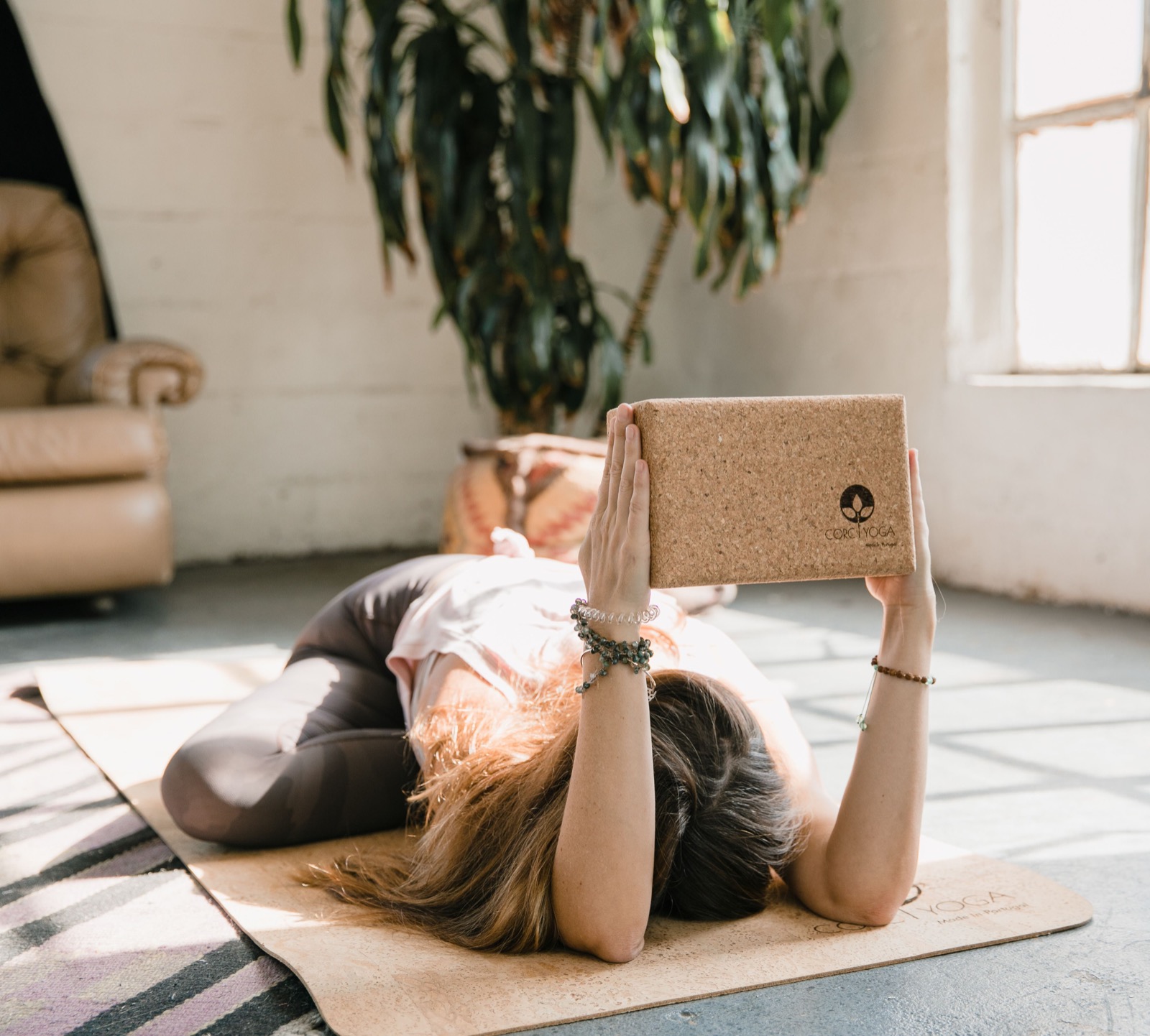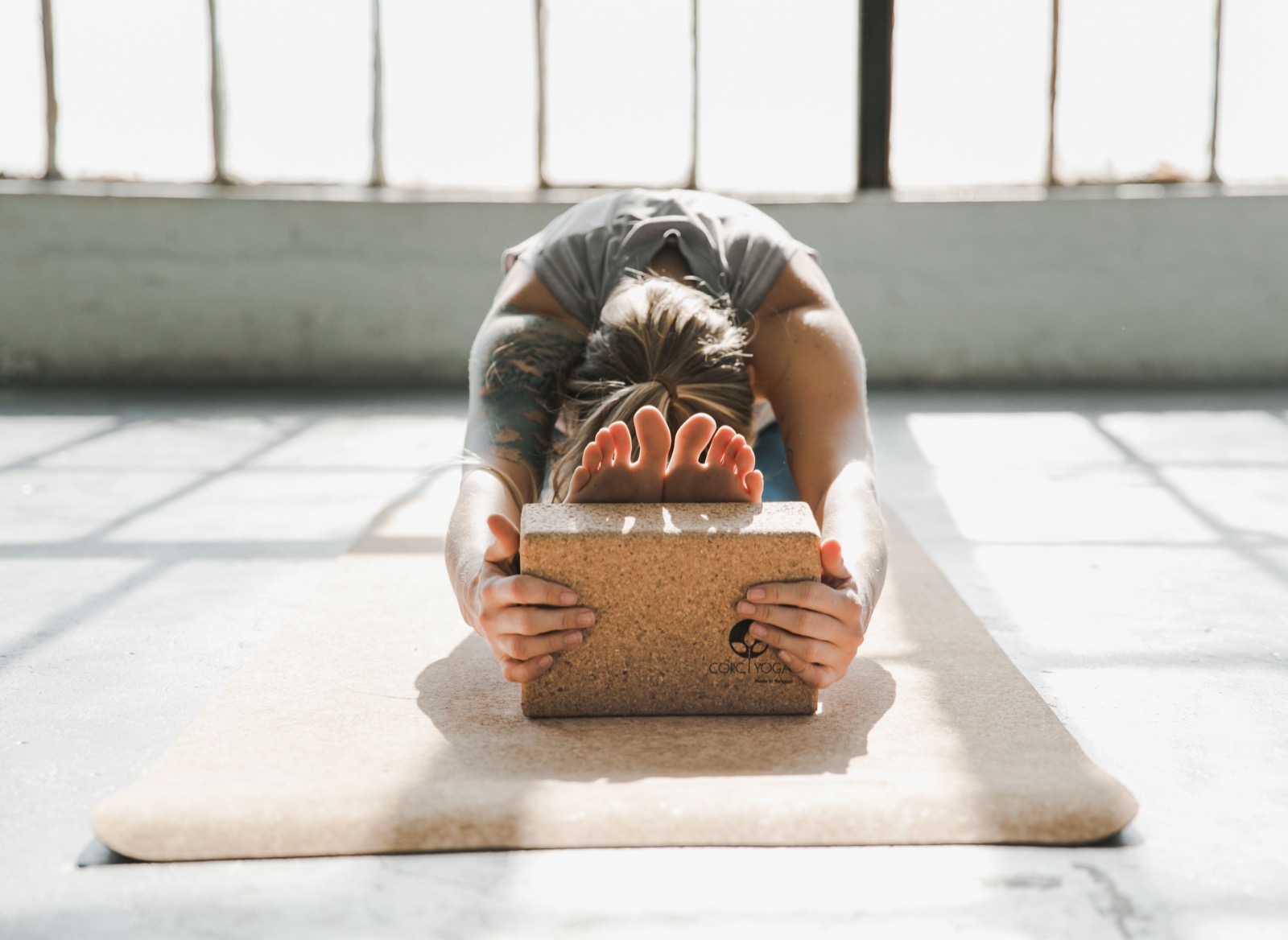Yoga is a gentle and restorative way to wind down your day since it can be a beneficial practice to improve and promote sleep quality. It is a fact that over 55% of people who did yoga found that it helped them get better sleep and over 85% said yoga helped reduce stress – the numbers are incredible and this is something that actually works!
At Corc Yoga we have a diverse set of products to make poses comfortable so that you can stay in the pose for longer and continue to breathe. The way we breathe is a fundamental key to relaxation and we dare to say that sometimes breathing in yoga is equally important—if not more important—as the physical pose.
Here are several ways yoga can help you sleep better:
- Stress reduction: Yoga incorporates relaxation techniques, deep breathing, and meditation, which can help reduce stress and anxiety. Lowering stress levels can make it easier to fall asleep and improve the overall quality of sleep.
- Body and mind relaxation: The physical postures (asanas) in yoga, especially those designed for relaxation, help release tension in the muscles and promote a sense of calmness in the mind. This can lead to a more peaceful and restful sleep.
- Regulates the nervous system: Yoga helps to balance the autonomic nervous system, which consists of the sympathetic (fight-or-flight) and parasympathetic (rest-and-digest) branches. By activating the parasympathetic nervous system, yoga can induce a state of relaxation, aiding in sleep.
- Improves circulation: Certain yoga poses can enhance blood circulation, which can be beneficial for individuals who have difficulty falling asleep due to poor circulation or cold extremities.
- Enhances mindfulness: Practicing yoga cultivates mindfulness and present- moment awareness. This mental state can help calm racing thoughts and promote a more tranquil mind before bedtime.
- Reduces physical discomfort: If you experience discomfort or pain that interferes with sleep, gentle yoga stretches can alleviate muscle tension and improve flexibility, potentially reducing sleep disturbances caused by physical discomfort.
- Establishes a bedtime routine: Incorporating yoga into a bedtime routine can signal the body and mind that it’s time to wind down, helping to create a consistent sleep schedule.
- Combats insomnia: Studies have shown that regular yoga practice can improve sleep efficiency and reduce the symptoms of insomnia.
The benefits are huge but there are a few aspects, when incorporating yoga into your sleep routine, that one should consider: close to bedtime, make sure to practice gentle, calming yoga poses rather than intense or stimulating ones; Combine yoga with deep breathing exercises and meditation for a holistic relaxation experience; Create a soothing environment for your practice, such as dim lighting and minimal distractions and be consistent with your practice to experience long-term benefits for sleep.
Remember that individual responses to yoga may vary, and it’s essential to find the right combination of practices that work for you. If you have severe or chronic sleep issues, it’s always a good idea to consult with a healthcare professional to address any underlying concerns.






